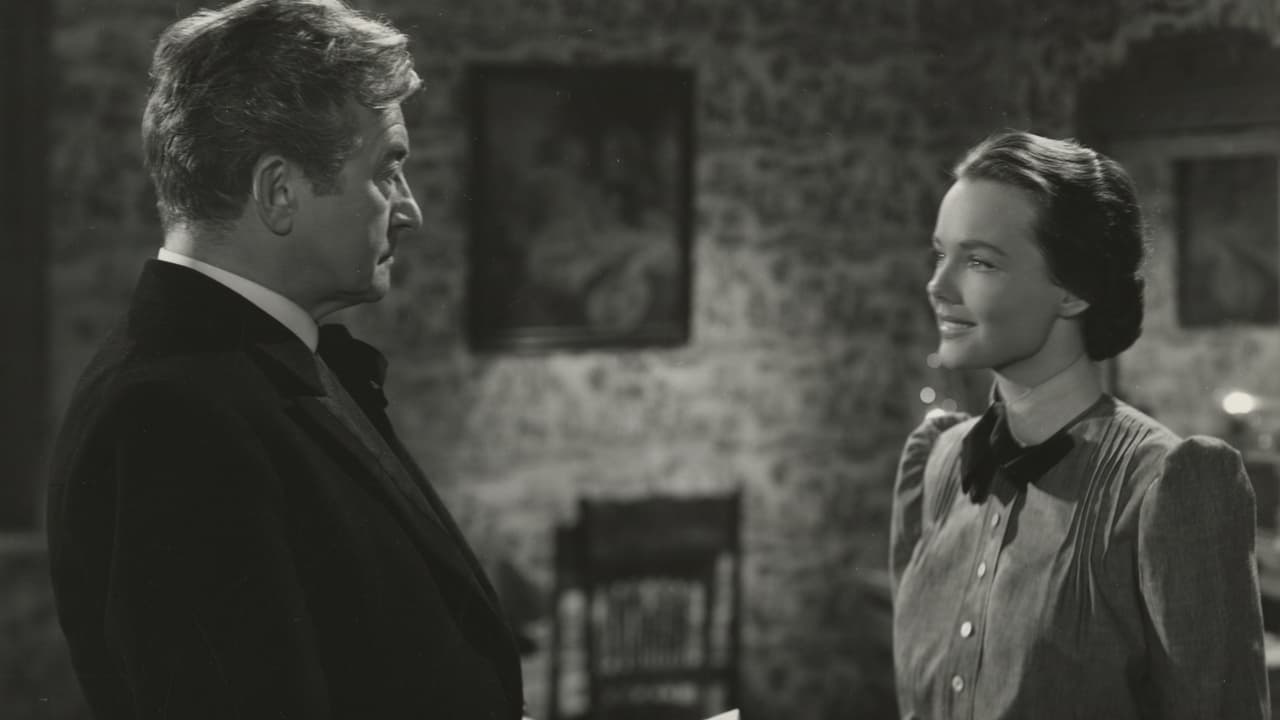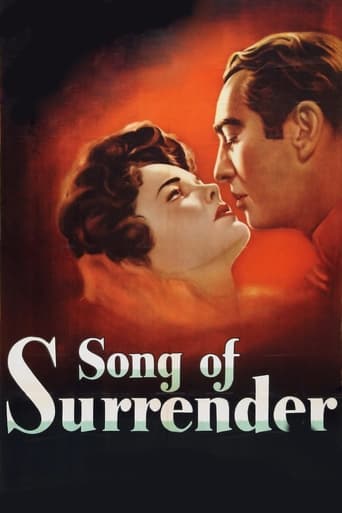



Most undeservingly overhyped movie of all time??
It's no definitive masterpiece but it's damn close.
View MoreAm I Missing Something?
I think this is a new genre that they're all sort of working their way through it and haven't got all the kinks worked out yet but it's a genre that works for me.
View MoreAn odd film about the power of music: Claude Rains as an elderly curate bullies his much youngar wife, an uneducated girl he treats like serving maid, but she doesn't mind, until another, younger man enters her life. With him follows a grammophone (1906) with records of Caruso, and that changes her life and that of Claude Rains as well. He becomes jealous of the grammophone, but the more resists and battles against the intrusion of music in his life, the more deeply he will eventually succumb to it.Claude Rains makes an awesome performance as usual, and the others are good enough but pale in his presence, while the greatest asset of the film is the music. It's not only Caruso, but the score is by Victor Young, and you will never forget that melody. It's a very unusual film for actually making music play the lead of both the story and the character of it, and you will eventually forget the story and the characters but not the music.
View MoreSPOILERS.....Viewed this film online and Claude Rains makes the most out of a 'typical' older man/younger woman/stranger in town plot device and breathes fresh life into it with his characterization. Because of his performance, his colleagues also rise to the occasion which raises the bar for this film.......the story goes: In 1906, in a small New England town, Abby, the young wife of a middle-aged, Puritanical Civil War historian and museum curator, Elisha Hunt, meets New York lawyer Bruce Eldridge. Bruce is engaged to a beautiful, wealthy widow named Phyllis Cantwell, who has recently bought a house up the hill from the Hunts. Although he used to be an ambitious political statesmen, Bruce has abandoned his aspirations and become a playboy among Phyllis' upper-class social set. While Elisha is away giving a lecture, Abby attends a local auction at the Abernathys' and makes a modest bid on a chair for Elisha, but is outbid by Phyllis. When the townspeople are too afraid to bid on a gramophone because they think it is an instrument of the Devil, Abby buys it in defiance of Phyllis' snobbish friends. With the gramophone are recordings of arias sung by world-class tenor Enrico Caruso, which Abby listens to over and over again, falling in love with the music. When Elisha comes home and finds Abby dreamy-eyed over the music, having burned her bread, he tells her that Abernathy hanged himself after the auction, and forbids her to keep the gramophone. She gives it to a friendly grocer named Mr. Willis, and while Elisha is away, she plays it night after night on a nearby hilltop. One night, Bruce, hearing the music, visits her, and they fall in love. Bruce dresses Abby up and takes her out for an evening of music and dancing, after which they enjoy an innocent kiss. After Elisha returns home, village deacon Parry tells him that a shameless heathen has been singing in the valley day and night, provoking Elisha to accuse Abby of disobeying him. He is about to destroy the gramophone with an axe when Abby breaks into tears, begging him to let her have her music, but not telling him that it represents her only link to Bruce. In the following weeks, Abby becomes increasingly distant from Elisha. When she receives a Caruso record album from Bruce in the mail, Elisha confronts her, and she admits she spent an innocent evening with Bruce, and that the music has changed her. Elisha angrily smashes the album and, at Sunday morning church service, publicly denounces Abby as an adulterer. She defends herself and runs from the church, then takes a train to New York to see Bruce. Upon Abby's arrival, there is a surprising plot twist which brings her back to her husband.......The ending is really well done and the performances match up to the drama that is created.
View More